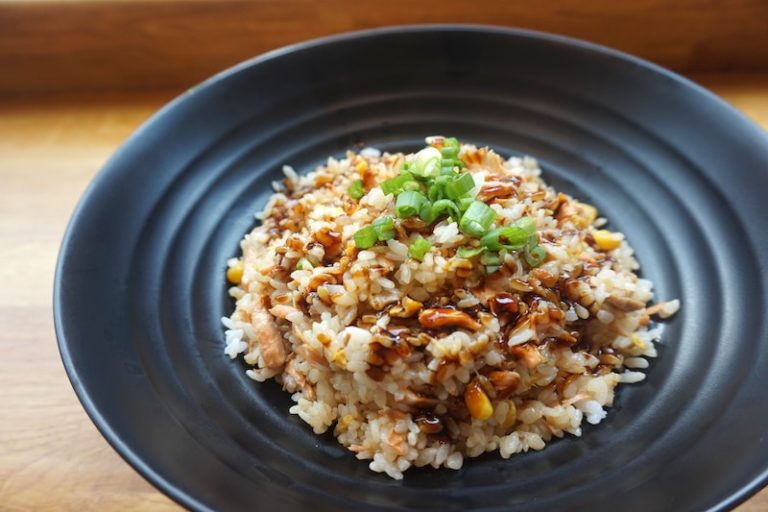
During a long-distance race, the body uses carbohydrates and fats as fuel. While fat reserves are nearly unlimited, carbohydrate stores deplete quickly. To give yourself the best chance in preparing for your marathon or trail run, it is essential to start the race with full carbohydrate reserves. Here are some tips for optimal nutrition.
Digestive issues are common during long-distance races like marathons or trail runs. These long races put significant stress on the body due to impacts, energy expenditure, and the stress of race day. This stress is heightened by the unusual distance or the pressure of achieving a goal you’ve trained for over many weeks. How can you make pre-race nutrition an ally?
Contents
Running: A strain on the intestinal walls
During long-distance efforts, the heart prioritizes blood flow to the most important organs during exertion, primarily the brain and muscles. The intestines can sometimes be deprived of blood, and the repeated impacts can cause lesions in the intestinal wall. Therefore, it’s essential to ease the load on our digestive system.
From 10 Days to 3 Days Before the Race: Nutrition Principles
Training intensity will begin to decrease to ensure freshness on race day. To properly assimilate the weeks of pre-competition training, maintain a good lifestyle with a balanced diet. Don’t underestimate the importance of good sleep.
In a balanced diet, eat a variety of foods: carbohydrates, proteins (white meat, fish, eggs, etc.), vegetables, fruits, nuts, and omega-3-rich oils (flaxseed, canola, etc.). Stay well-hydrated! Vary your intake with still water, sparkling water, herbal teas, and tea, and don’t be too restrictive. You can enjoy a beer or a glass of wine occasionally, but in moderation, of course.
Reduce fiber and residue intake to avoid intestinal discomfort during the race. Favor white meat, eggs, zucchini, soups, etc. Some may prefer gluten-free foods.
For quality carbohydrate loading and optimal pre-race nutrition, we recommend reducing your portions of carbohydrates and starchy foods from 6 days before to 4 days before the race, without completely stopping them (as the body can struggle with the transition). This reduction allows you to lower your carbohydrate stores before loading up in the final days.
From 3 Days to 1 Day Before the Race: Final Preparation
From 3 days before the race to 2 days before, it’s time to load up on quality carbohydrates with a low glycemic index. Ideally, take advantage of the 4 to 6-hour metabolic window after your reminder session to replenish carbohydrates.
Preferred foods include steamed potatoes cooked with their skins, sweet potatoes, semi-whole grain rice, buckwheat, quinoa, honey, maple syrup, etc. Fruits can provide fructose, which is beneficial for the body, but avoid fiber. Choose well-ripened bananas or cooked fruits: apples, pears, peaches.
Avoid foods with a high glycemic index: overcooked pasta, white bread, sugar, fries, cornflakes, rice cakes, etc.
Overall, reduce vegetable intake, especially raw vegetables and dried legumes (such as lentils), which are very abrasive and not always well tolerated. Opt for soups, or cooked carrots or zucchini, or even vegetable juices (using a juicer) to help reduce body acidity.
If you remember only one piece of advice, reduce fiber intake and favor carbohydrates (without overindulging!).
Optimal Hydration
Drink regularly throughout the day, still or sparkling water, or hot drinks. An isotonic drink can be recommended.
Avoid sodas (very sugary, they limit nutrient absorption), fruit juices (sugary and acidic), and milk-based drinks (lactose requires a lot of energy to digest).
Nutrition the Day Before the Marathon or an Ultra
Eat as you did in the previous 3 days, minimizing fiber, spices, saturated fats (fried foods, prepared dishes, etc.), and nuts. Don’t overeat, as overloading the digestive system consumes a lot of energy. Avoid eating unfamiliar foods!
Nutrition on the Morning of the Race or Race Day
Whether you’re planning to run your marathon in 3 hours or your ultra in 11 hours, always eat 3 hours before the race (or even earlier for some). It might be early, but you won’t regret it! First, drink water or herbal tea before eating, and avoid going back to bed afterward.
Only eat foods you’ve already tested before a race or specific training session. No one wants to gamble on the results of weeks or months of preparation 😉
You’ve loaded up on carbohydrates in the preceding days, so no need to eat too much, quite the opposite.
Breakfast ideas before exertion:
Tea, herbal tea, coffee, water
Bread, pancake
Sports cake
Honey, maple syrup, jam
Ham, tuna
Stewed fruit, well-ripened banana
Breakfast to avoid before a race: fruit juice (acidic, quick sugars), soda, raw fruits, nuts, whole grain bread (too much fiber), dairy products.
Drink a little water every 30 minutes, but not too much (maximum 0.5L per hour, or up to 0.7L in extreme heat)! Otherwise, the risk is hyponatremia.
And that’s enough!
There will be plenty of time to refuel during the race if necessary.
You are now fully prepared to start your race, be it a marathon, trail, ultra, or triathlon. If you’re looking for tailored training and advice throughout your preparation, the RunMotion Coach app is the service for you. All pre-race nutrition advice is included in the app. On your marks, get set… go!
These articles might also interest you: